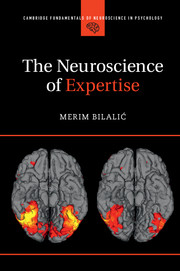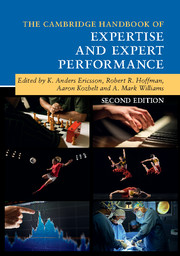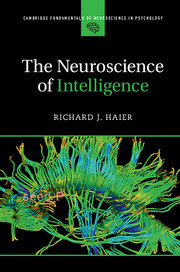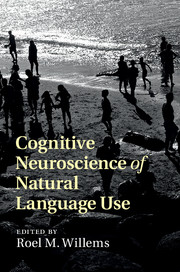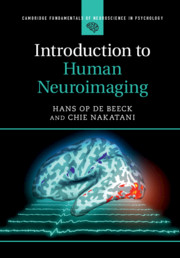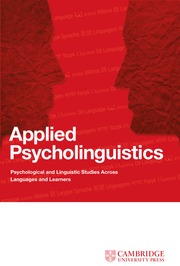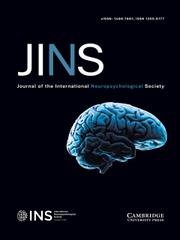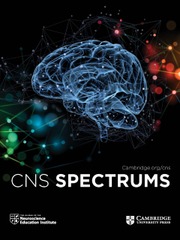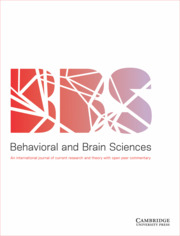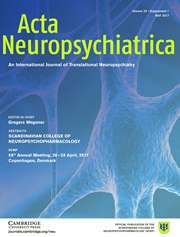The Neuroscience of Expertise
£37.99
Part of Cambridge Fundamentals of Neuroscience in Psychology
- Author: Merim Bilalić, Alpen-Adria-Universität Klagenfurt, Austria
- Date Published: February 2017
- availability: In stock
- format: Paperback
- isbn: 9781107446519
£
37.99
Paperback
-
The Neuroscience of Expertise examines the ways in which the brain accommodates the incredible feats of experts. It builds on a tradition of cognitive research to explain how the processes of perception, attention, and memory come together to enable experts' outstanding performance. The text explains how the brain adapts to enable the complex cognitive machinery behind expertise, and provides a unifying framework to illuminate the seemingly unconnected performance of experts in different domains. Whether it is a radiologist who must spot a pathology in a split second, a chess grandmaster who finds the right path in a jungle of possible continuations, or a tennis professional who reacts impossibly quickly to return a serve, The Neuroscience of Expertise offers insight into the universal cognitive and neural mechanisms behind these achievements.
Read more- Offers the first look into the neuroscience of expertise, a field not previously studied thoroughly
- Analyses a wide range of expertise domains, divided into three groups: perceptual, cognitive, and motor
- Tying the newest research on the neuroscience of expertise with studies in cognitive science, the book provides a strong and unifying framework
- Supplementary online material includes PowerPoint slides for teaching, high-resolution color images from the book and a collection of internet links about the topics discussed in the book
Reviews & endorsements
'The first comprehensive treatment of this area of research, The Neuroscience of Expertise is an invaluable resource for students of expertise, whatever the level, and will push forward scientific understanding of a topic long of interest to psychologists and laypeople alike.' David Z. Hambrick, The British Journal of Psychology
See more reviews'… very well written and reader-friendly … [it] provides undergraduates, among others, much interesting and useful information about expertise …' PsycCRITIQUES
Customer reviews
Not yet reviewed
Be the first to review
Review was not posted due to profanity
×Product details
- Date Published: February 2017
- format: Paperback
- isbn: 9781107446519
- length: 316 pages
- dimensions: 228 x 154 x 15 mm
- weight: 0.55kg
- contains: 58 b/w illus. 10 colour illus.
- availability: In stock
Table of Contents
1. Introduction to research on expertise
1.1 Introduction
1.2 Definition of expertise and its domains
1.3 Cognitive mechanisms in expertise
1.4 How the brain accommodates expertise
1.5 Expertise as a research vehicle in cognitive neuroscience
1.6 Conclusion
2. Perceptual expertise
2.1 Introduction
2.2 Anatomy of the perceptual system
2.3 Adaptability of the perceptual system
2.4 Visual expertise
2.5 Auditory expertise
2.6 Tactile expertise
2.7 Gustative expertise
2.8 Olfactory expertise
2.9 Conclusion
3. Cognitive expertise
3.1 Introduction
3.2 Memory systems and their neural basis
3.3 Memory expertise (superior memory)
3.4 Calculation expertise
3.5 Expertise in board games
3.6 Spatial expertise
3.7 Conclusion
4. Motor expertise
4.1 Introduction
4.2 Anatomy of the motor system
4.3 Adaptability of the motor system
4.4 Simple motor tasks (skill acquisition)
4.5 Motor expertise
4.6 Music (motor) expertise
4.7 Cognitive component in motor expertise
4.8 Neural implementation of motor expertise
4.9 Conclusions
5. The road to expertise
5.1 Introduction
5.2 Different experts, same cognitive and neural mechanisms
5.3 Different approaches in expertise research
5.4. The road to expertise
5.5 Nature vs nurture in neuroscience
5.6 Deliberate practice
5.7 Conclusion.-
Lecturer Resources
Find resources associated with this title
Type Name Unlocked * Format Size Showing of
This title is supported by one or more locked resources. Access to locked resources is granted exclusively by Cambridge University Press to lecturers whose faculty status has been verified. To gain access to locked resources, lecturers should sign in to or register for a Cambridge user account.
Please use locked resources responsibly and exercise your professional discretion when choosing how you share these materials with your students. Other lecturers may wish to use locked resources for assessment purposes and their usefulness is undermined when the source files (for example, solution manuals or test banks) are shared online or via social networks.
Supplementary resources are subject to copyright. Lecturers are permitted to view, print or download these resources for use in their teaching, but may not change them or use them for commercial gain.
If you are having problems accessing these resources please contact [email protected].
Sorry, this resource is locked
Please register or sign in to request access. If you are having problems accessing these resources please email [email protected]
Register Sign in» Proceed
You are now leaving the Cambridge University Press website. Your eBook purchase and download will be completed by our partner www.ebooks.com. Please see the permission section of the www.ebooks.com catalogue page for details of the print & copy limits on our eBooks.
Continue ×Are you sure you want to delete your account?
This cannot be undone.
Thank you for your feedback which will help us improve our service.
If you requested a response, we will make sure to get back to you shortly.
×
